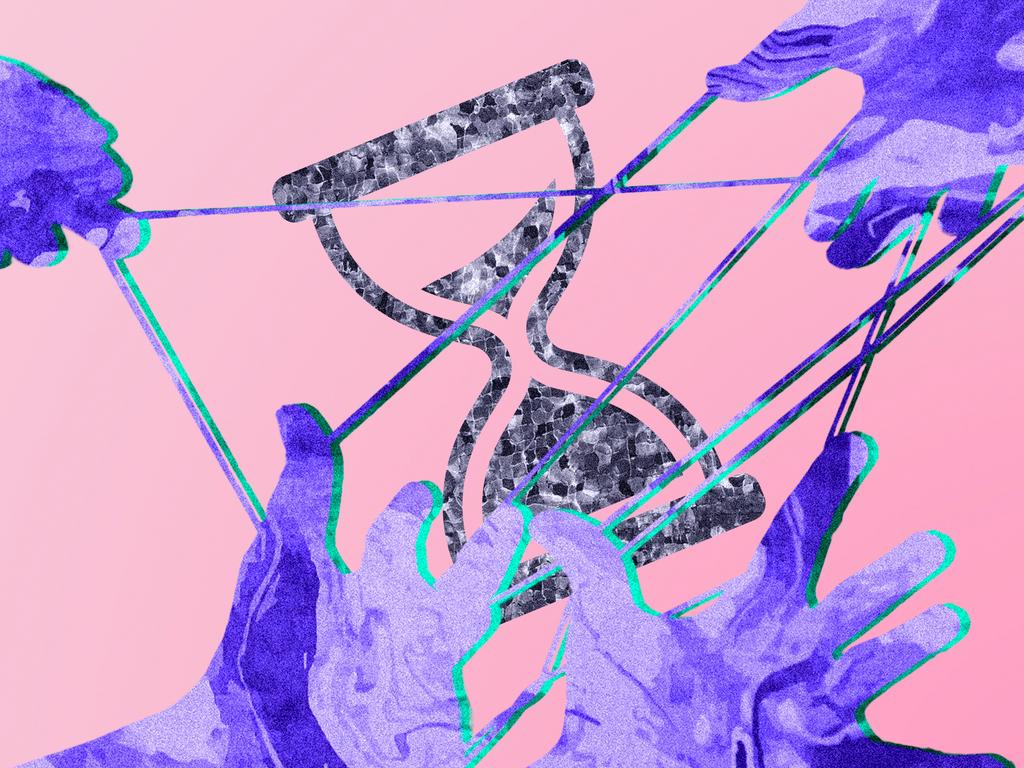There’s less science than Wonderland behind the 10,000 steps rule
Oh dear, what if there’s nothing at all but marketing behind the step count that now rules our lives?

Charles Lutwidge Dodgson was really onto something.
Charlie Dodgson is better known to the world as Lewis Carroll, author of Alice’s Adventures in Wonderland. That classic might have been published in 1865, but the well-dressed, pink-eyed, hyperventilating white rabbit he writes about – “Oh dear! Oh dear! I shall be late!” – could have been any one of us here in the 21st century, not with a pocket-watch but gripping with modern-day anxiety our mobile phones.
Charlie was way ahead of his time with that rabbit-hole of his too. We too follow Alice into that dark subterranean tunnel a hundred times a day via an incessant stream of phone notifications – news, food, health, sport, financial reports, weather, fashion, spending statistics, graphs, charts, slashed prices, property updates – even one that literally just appeared on my phone as I write this – proudly announcing the winner of the Digital Travel Insurer of the Year!
Poor bunnies we, always late, forever on the razor’s edge of sanity, bashed and bludgeoned by relentless pings and bings, cast forever into rabbit-holes of mindless and useless information that someone else insists we want and need.
If only we could be taken safely away from all this lunacy. (But wait, let’s contact the Digital Travel Insurer of the Year!)
In 2022, Discover Magazine reported on the ping-and-bing phenomenon and how it messes with our brains.


It quoted a Journal of Behaviour and Experimental Economics study by academic Mosi Rosenboim at Ben-Gurion University of the Negev in Israel. Dozens of undergraduates were divided into three groups – those who received texts every minute, three minutes and none at all.
The findings were – bada bing – as you’d have expected.
“The responses from people who received more frequent messages indicated that they experienced higher levels of impulsivity, inattention and stress than the other groups,” the article said. “We only have so much mental capacity, and the extra effort it takes to switch between tasks can exhaust us, make us more susceptible to distractions and disrupt emotional regulation … (also resulting in) slower work performance.”
Researchers believe that, in this mind state, we also have “a less accurate perception of time”. Other studies have shown that SMS notifications increase our tendency to favour the present, the constant interruptions causing stress and affecting our ability to make sound decisions.
Oh dear, oh dear, you can hear your inner-rabbit saying, I shall be late.
Come with me down the rabbit-hole a little further.
Of all the notifications that surf in on my mobile phone, the newest and most consistently annoying is one that offers data about how far I’ve walked in a single day. Yes, the 10K monster, the perambulation overlord, the painfully fastidious counter of steps who now lives in an app on my phone and throws sometimes humiliating and often downright patronising data at me 24/7.

Ever since I innocently downloaded this digital pedometer it’s as if I’ve been transported back to primary school sports class under Mr Clark.
We all had a Mr Clark. Below medium height. Straight brown hair with a left-sided part so scalp-white it was blinding. An immaculately trimmed, almost-but-not-quite pencil moustache that permanently hovered hawk-like above a weak chin, as if protecting it.
Mr Clark was no athlete, but he had that most feared quality of any sports master – a civilian with a lifelong passion for the military. I vaguely remember him wearing all khakis during sports class. Mr Clark would have donned a pith helmet but in the 1970s we had no school-issued pith helmets available in the school uniform shop.
And he was the human embodiment of future mobile phone fitness notifications with that Jack Russellesque bark of his. Stand up straaaaaaaight! At eaaaaaaase! One-two THREE, one-two THREEEEEEE! Hut, hut, hut!
Poor Mr Clark. He was such a highly strung, tightly packed, sweat-inducing stick of anxiety-ridden human dynamite he would have simply self-detonated if he’d been born into the phone notification generation, his moustache fluttering earthward while still issuing orders.
So when my steps dictator sent me yet another message the other day – you ranked in the top 31 per cent of StepUp App users in Australia yesterday! – I drew a line in the sand. Top 31 per cent? Hardly an endorsement. Top one-third? (Not good enoooooough! I can hear Mr Clark bellow.)
It was time to question the entire philosophy of this 10,000-step nonsense. Who decided that that was the optimal daily distance to maintain physical health? Why was I blindly accepting data flung at me by this application, tumbling freely down a rabbit-hole of somebody else’s making? Yet again?
I found this in a publication called News Medical: “The ubiquitous concept of walking 10,000 steps a day originated in 1965 in … Japan. Dr Yoshiro Hatano invented the pedometer, naming it ‘Manpo-kei’, which translates to ‘10,000-step metre’. One would think this figure originated from years of significant scientific research; however, it was actually an arbitrary number used to reflect an active lifestyle. As a result of this device, an advertisement campaign was designed, which furthered the awareness of this concept, something which has since become a global phenomenon.”


Well, poke me with a fish fork. This globally popular 10K steps business came out of some arbitrary meeting of a bunch of self-serving advertising plonkers in the 1960s. Nothing like entrusting your longevity with people who give birth to jingles for sugar-filled breakfast cereals and campaigns for Digital Travel Insurers.
Dr Hatano’s gimmick has taken over our lives. Our phone notification centres.
As Edwina Langley wrote in the London Standard: “Do you remember the day you found out you could see how many steps you’d taken in a day just by opening an app on your smartphone? What a day that was …‘Oh look! I walked MILES that night, what was I doing?’ (Dancing at Janet’s wedding.) And then … ‘Oh dear, did I even leave the house that day?!’ (Day after Janet’s wedding.)”
Anyway, who says 10K steps a day is the optimal ambition for humans wanting to “stave off death”? (Good luck with that.)
Here’s another rabbit-hole that I found in the Grand Master of all rabbit-holes that is the internet.
A few years ago The Guardian reported: “But while the World Health Organisation, the American Heart Foundation and the US Department of Health & Human Services have all gradually adopted 10,000 steps as a daily activity recommendation, in recent years the veracity of this number has been increasingly called into question. Earlier this year, Mike Brannan, national lead for physical activity at Public Health England, declared: ‘There’s no health guidance that exists to back it.’
“Indeed, most of the scientific studies that have been conducted to try to test whether 10,000 steps a day is optimal for health are themselves relatively arbitrary. They simply compare people who have done 10,000 steps a day with those who have done far lower numbers, such as 3000 or 5000, and then measure calories burned, blood pressure and blood glucose levels.
“‘This number keeps being reinforced because of the way research studies are designed,’ says Professor Catrine Tudor-Locke of the Centre for Personalised Health Monitoring at the University of Massachusetts Amherst (in the US). ‘So, the study might find that 10,000 helps you lose more weight than 5000 and then the media see it and report: Yes, you should go with 10,000 steps … but that could be because the study has only tested two numbers. It didn’t test 8000, for example, and it didn’t test 12,000.”
Professor Tudor-Locke even said that the daily 10K ambition might be too lofty for a lot of people and actually discourage them from getting off their posteriors and getting active in the first place.
She suggested a better question – how few steps do we need to take in a day to maintain some form of consistent and beneficial health level?
Exactly. Perhaps my app should be sending me notifications like: “You ranked in the bottom 59 per cent of StepUp App users in Australia yesterday.”
I explained my convoluted predicament to my wife and she shot me a weary phrase that left me like, well, a rabbit in the headlights.
“Just delete the app,” she said with the lift of an eyebrow.
Bada-bing.





To join the conversation, please log in. Don't have an account? Register
Join the conversation, you are commenting as Logout